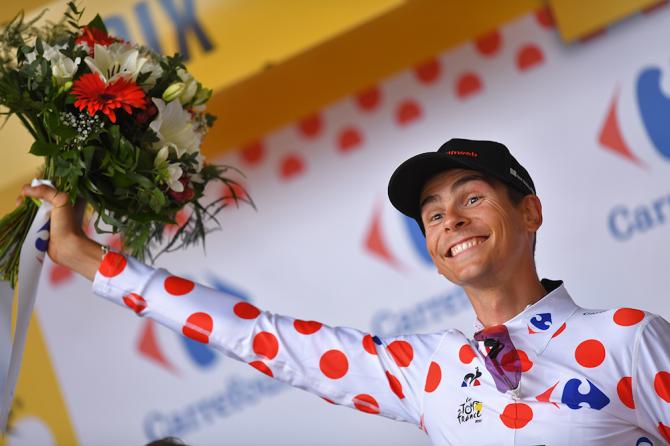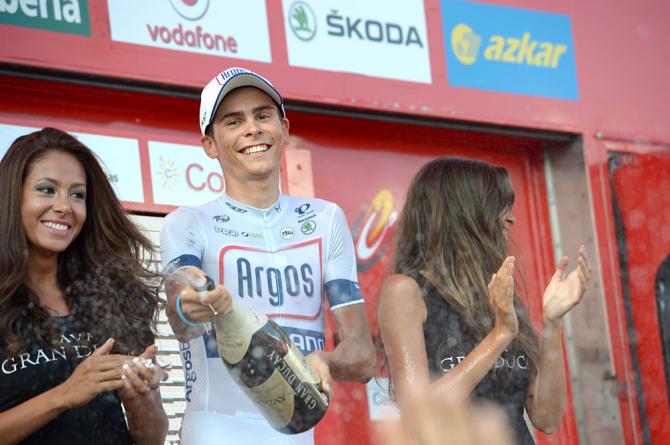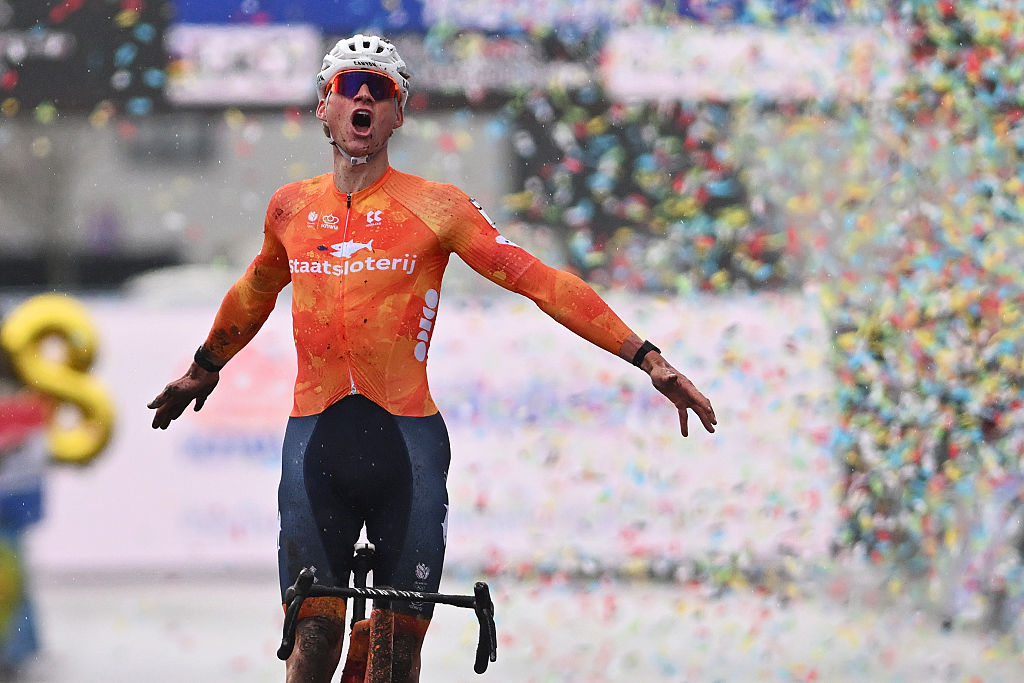Warren Barguil: The free spirit
'It's important to have panache. It's why I got interested in cycling'
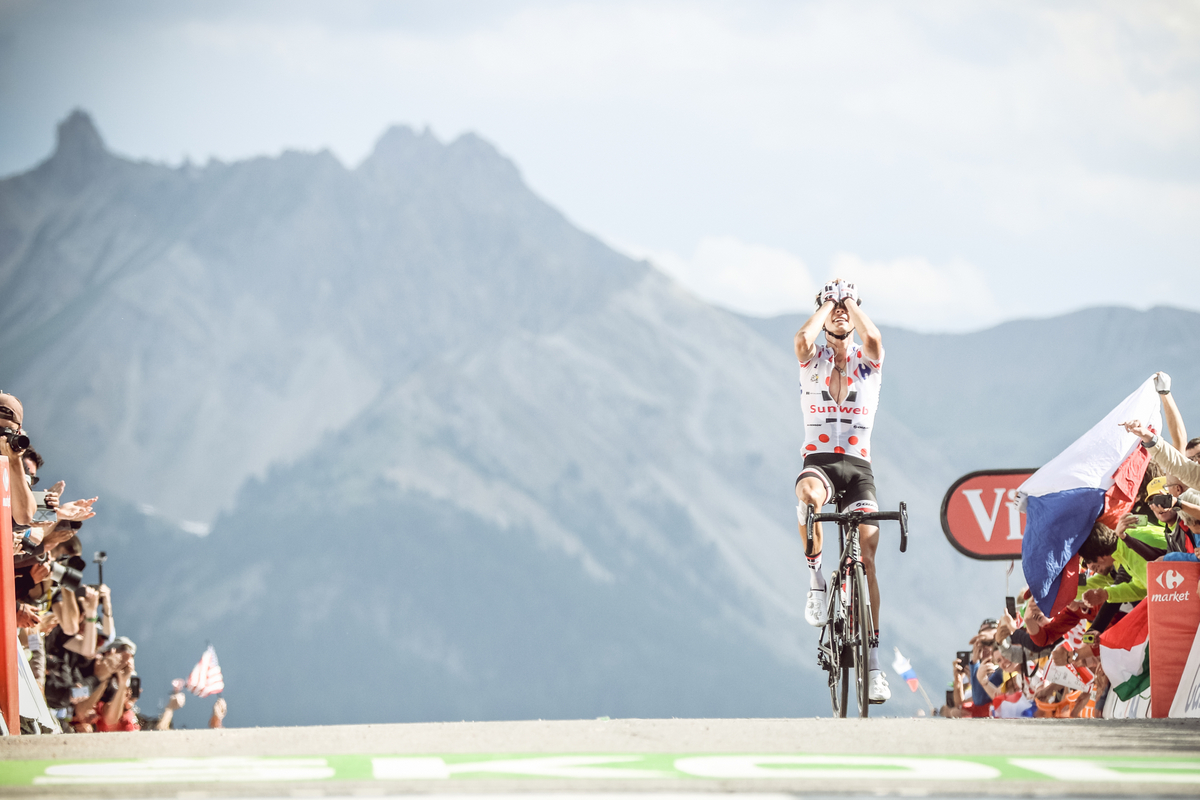
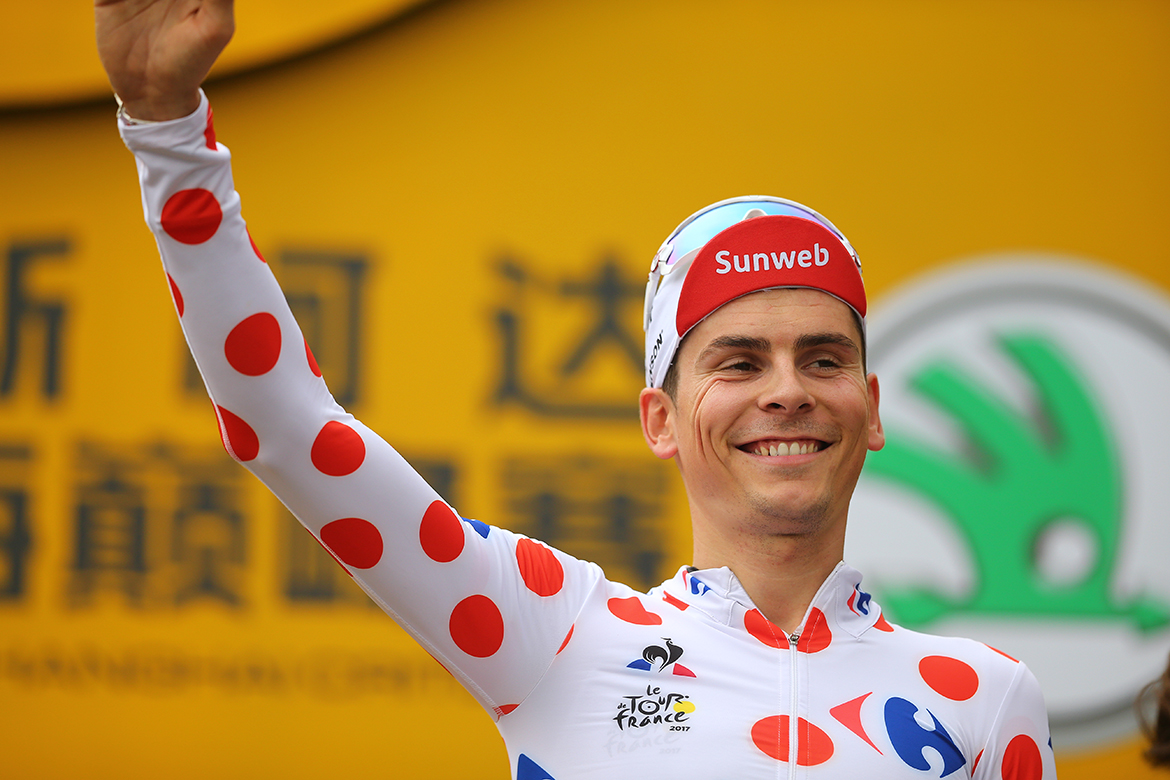
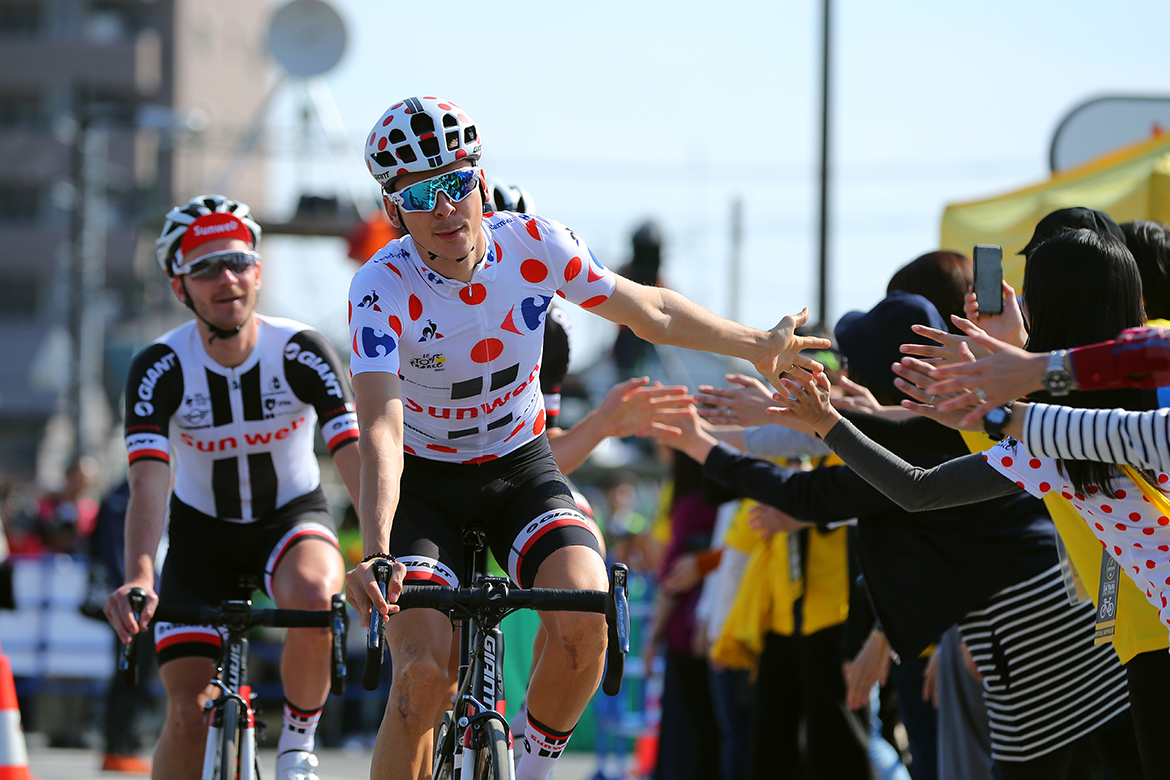
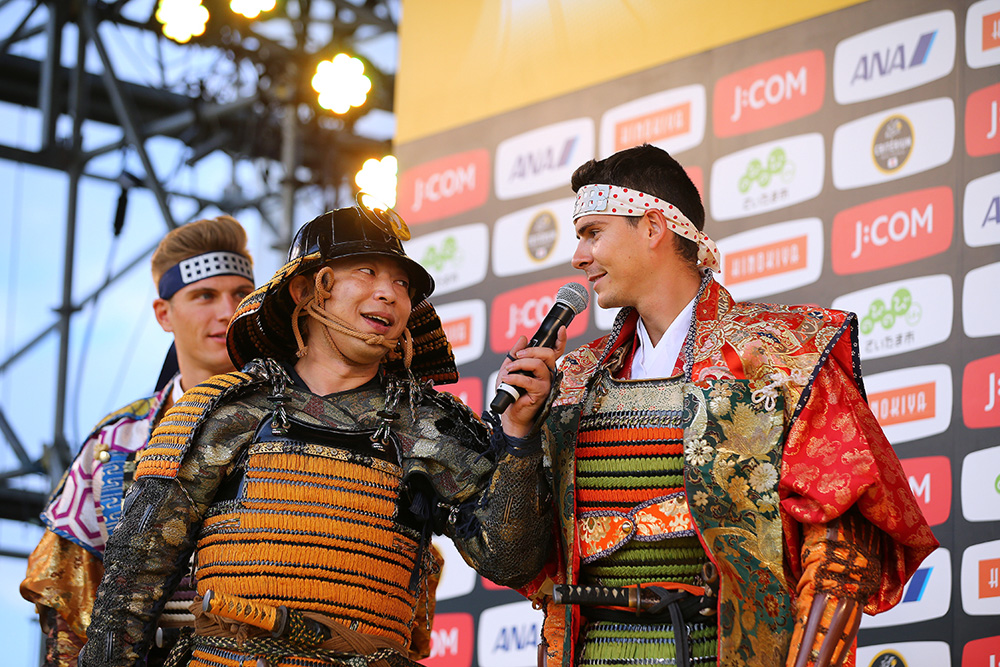
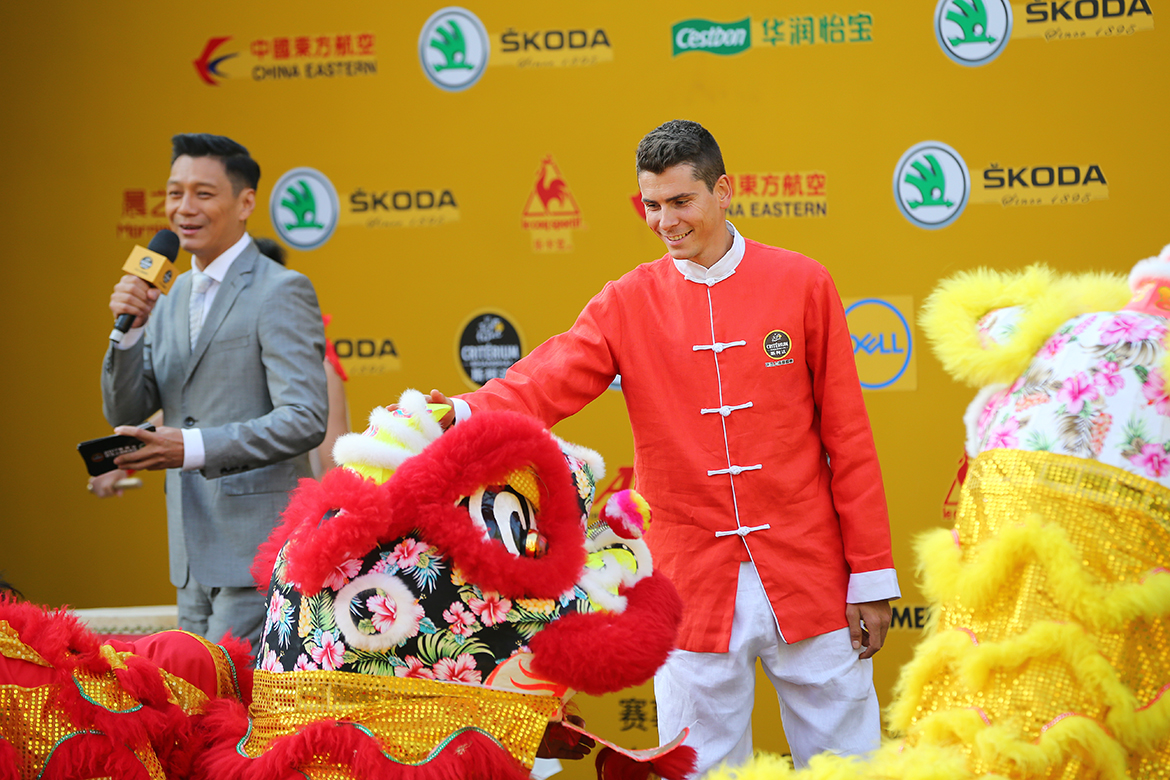
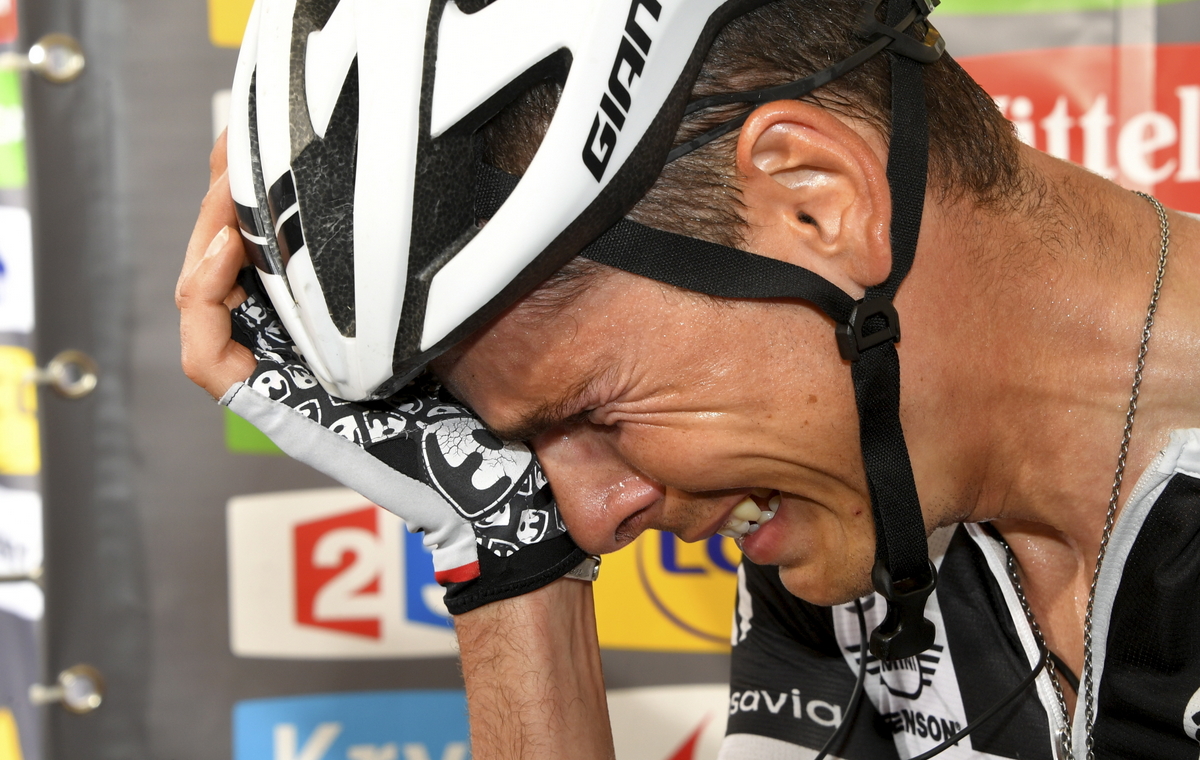
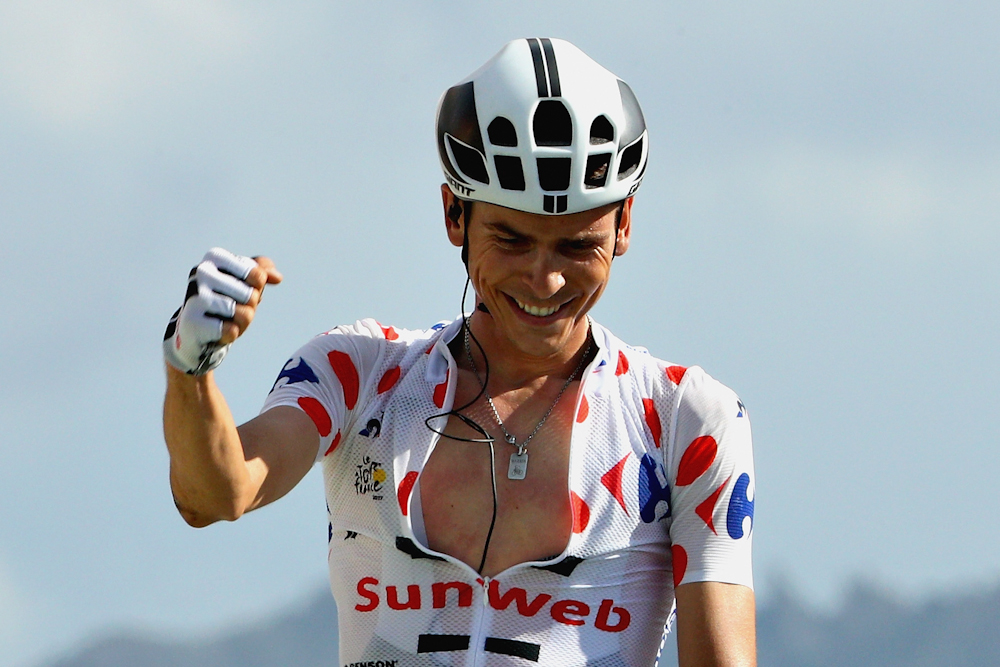
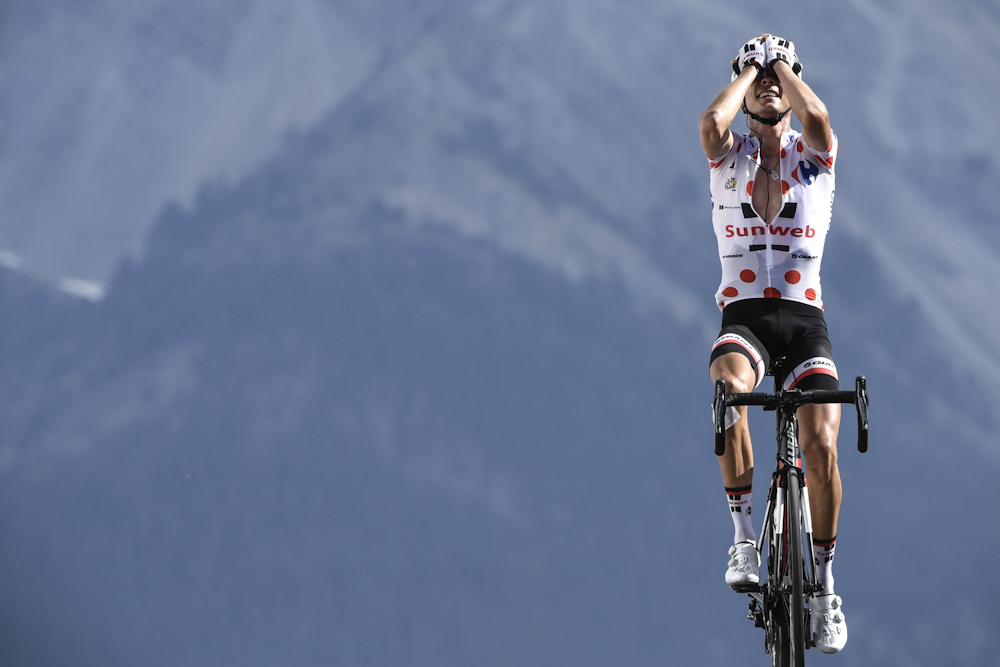
Warren Barguil rolls over to the area behind the podium at the Shanghai Criterium, where the prizes and paraphernalia are piled up, checks over his shoulder, and stuffs a miniature yellow airhorn into his jersey pocket. The post-race ceremonies done and dusted, he sneaks up on a huddle of ASO blazers and almost deafens them, laughing in delight as he rides off towards the race HQ hotel, where later that night – or rather deep into the following morning – he’ll do the same on almost every floor of the five-star establishment.
“We have only one life. It’s not a computer game where you get 10 lives. You just need to enjoy it,” Barguil says of his free-spirited, slightly mischievous streak.
His outlook on life, he explains, changed markedly in the aftermath of the collision with a car that nearly killed him and six teammates in January of last year.
“Since the accident I really have a different vision of things,” he says. “Cycling was already my passion, but my life is not only cycling, like some people. If it’s working, good, but if it’s not working… I take a look at what it is, but it’s not the end of my life. If cycling stops tomorrow, or in one year or two years, then that’s how it is. I have a life.”
If Barguil’s view of the world changed nearly two years ago, his view of his profession changed this year. The Tour de France, specifically, seemed to represent a seminal moment in the Frenchman’s career, a whirlwind three weeks of liberation and self-discovery. Freed from the shackles of targeting the general classification, he attacked at will in the mountains and by Paris had two stage victories and the polka-dot jersey in the bag, as well as a shock transfer from Sunweb to Fortuneo-Oscaro as good as finalised.
It would be unfair to say that Barguil’s career had gone off the rails since he burst onto the professional scene in 2013 with two stage wins at the Vuelta a España, but the fact that his two victories at the Tour were his first since that race does tell a story. Perhaps you could say that he had faded into greyscale, and that in July we saw him back in screaming colour.
“I needed to rediscover my feeling for cycling, because I’d lost it riding for GC,” he admits. “And, yeah, I found it again this season. I just found my way of being a pro, found my way of racing again.
The latest race content, interviews, features, reviews and expert buying guides, direct to your inbox!
“Yeah, it’s just fun now,” he adds, with a smile and a shrug of the shoulders, as if bemused at how things weren’t always this simple.
Fun, it seems, is the operative word for Barguil, cropping up frequently often over the course of our interview.
“We need to show to the public that cycling is fun, a fun sport, and not boring,” he says, and it’s at this point that he maps out his vision of the sport with the confidence and clarity that have solidified over the past months.
“I don’t like guys who just rely on the time trials, taking a lot of time there and just following in the mountains. For me, that’s not how I see cycling.
“For sure, time trialling is an important part of cycling but for me it should not decide who’s the winner at the end. At the moment, the guys who are really strong in the time trials just don’t care in the mountains, they just take their own pace knowing they can gain 1:30 in the time trial, and that in the mountains they can lose 30-40 seconds, or whatever, and they’re just going at their own pace and not trying to make something happen.”
It’s not difficult, here, to join the dots to Barguil’s soon-to-be-former teammate Tom Dumoulin, the time trial specialist whose breakthrough as a Grand Tour champion this year was a key factor in Barguil’s decision to tear up his Sunweb contract and seek sole leadership at Fortuneo.
If Dumoulin is reading this, and doesn’t like what he’s seeing, he might want to stop here and avoid Barguil’s next suggestion.
“Maybe one year we will see a Tour de France without a time trial,” he offers, deadly serious.
“Maybe that can be the solution if we want to have an attractive race. We skip the time trial and the guy who’s good at time trialling needs to attack and not just follow. That could be the solution to having a more open race.”
Barguil is really getting going now, and it seems best not to ask convoluted questions or try to steer the conversation in a certain direction, but just let him flow.
“It’s important to have panache. It’s why I got interested in cycling, actually, when I was a kid. When I looked at the guys who attacked from far out in the mountains, and you see that panache, that for me was an inspiration.
“If I had one hero, it was Alberto [Contador]. If you look at how he was racing, he was good in the TT, and if he wanted he could have just followed, but he just didn’t care. He just wanted to make a race. I remember when he won Tirreno-Adriatico, when he attacked 80 kilometres from the finish. Who now will do that? The directors are scared, the riders are scared. It’s not happening anymore. I really hope we will find more guys like Contador who try to do this. He was never losing until the finish line. We will miss him.”
Could Barguil be the one to take over the baton from the recently retired Spaniard?
“I don’t think so,” he says with a self-deprecating laugh, “but I would like to race with panache. Not just listening when they say ‘easy, you need to wait for the last 400 metres; you are fast in the sprint’… Just don’t care, just do what you want. It’s how we race as kids, just race with your heart.”
Do what you want. It’s precisely that attitude that soured Barguil’s departure from Sunweb. The annulment of the final year of his contract may have been agreed, amicably, several weeks previously, but his disgraced exit from the Vuelta a España seemed to emphasise that the time had come for the two parties to go their separate ways.
“I can’t say it was a bad team. That’s not my style, and I really have a lot of good memories,” he says diplomatically.
Barguil denies there was a clash of personalities or cultures, but does acknowledge ‘differences on a sporting level’ and they tie in with his previous comments.
“You know my character, and at times they say ‘yeah, you attack at this point’. Maybe at some points the decision was not right for me, and maybe it was right for the team. The team took good decisions but I can take good decisions too, for winning races, not always waiting until the big team makes the choice, you know. Sometimes I was waiting for the sprint because I’m fast, and maybe in a different way it was better to attack with a kilometre to go.
“For sure it was good to have this way too, because I was maybe a bit out of control and I needed to have some degree of control, but now I feel I’m old enough to take decisions.”
Barguil is keen to point that those issues were learning curves, rather than complaints, and that he leaves with a good deal of experience that he’ll draw on in the future. The reason for his departure, in the most simple terms, boiled down to the Tour de France, and his mind was made up not in July but in May, as Dumoulin lifted the Giro d’Italia trophy aloft.
“I want to be at the Tour every year, and with Fortuneo I have more chance of being in the Tour next year. With Tom we didn’t know who would be at the Tour next year. When you know the Tour starts in your area, you want to be there, it’s only one time in your life,” says Barguil.
“I have the feeling I need a new challenge. You always need to challenge yourself to progress. It was time to change. Also I had a group of friends, and every year one of them left, and then you feel like it’s not your group anymore. When John [Degenkolb] and Koen [De Kort] left it was strange, Tobias [Ludvigsson] too, and now Georg [Preidler] and Ramon [Sinkeldam]. Now it’s my turn to leave.”
Barguil must have placed good faith in the sense of humour of those ASO representatives in Shanghai. He’ll need to keep them onside if he’s to succeed in his move from the WorldTour-level Sunweb to the second-division Fortuneo-Oscaro, who are relying on a raft of invitations to stitch together a race programme befitting of a rider of his calibre.
The team, which is based in Barguil’s home region of Brittany, has received one of the four wildcard invitations to the Tour de France in each of the past four years, and will surely do so once again next year, not least since the race heads into Brittany in the first week. Fortuneo participated in fellow-ASO events Paris-Nice, Paris-Roubaix, and Flèche-Wallonne this year, but Barguil also wants them to earn an invite to a second Grand Tour, the Vuelta a España, for the first time, along with Liège-Bastogne-Liège and the Critérium du Dauphiné. And then there’s a raft of other WorldTour races outside the ASO remit, such as Il Lombardia, the Volta a Catalunya, and the Amstel Gold Race.
“It’s all about wildcards,” he says. “I just hope the organisers will say yes to us, because when I ask for a wildcard, it’s because I want to make a result at that race.”
The inference is that race organisers will not look down at their list of wildcard applicants and see ‘Fortuneo-Oscaro’, but rather, ‘Warren Barguil’s team.’ The 26-year-old does refer to the collective – “we will be motivated to show we’re not just a small Pro Continental team but a team that wants to get results” – but he makes little attempt to disguise or apologise for his status as the linchpin, the individual standing head and shoulders above the group.
“I grew up as a leader in Sunweb. You had Tom, Bling [Michael Matthews], Wilco, and me. I was leader in a few races and I really learned how to be it. For sure it will be different because now I’m the only one. If we don’t get results, people will look at me, and ask questions of me. But it’s not a big problem, I know how to do it, I can handle it.”
Barguil will kick off his season in France, likely at the Tour du Haut Var and then the Classic Sud Ardeche before Paris-Nice in March. If invited, he’ll ride Catalunya before targeting all three Ardennes Classics at the end of April. After a break, he would ride the Dauphiné, followed by the Tour de France and the Vuelta a España, before capping his season at the World Championships and Il Lombardia.
The campaign is likely to be defined by the Tour and after the epiphany of this year he is, quite understandably, keen to return with the same free-spirited approach. The irony is that by discarding GC he ended up recording his highest overall finish, inadvertently cracking the top 10 after ‘just following’ his way to 14th and 23rd overall the two previous years.
However, for all the talk of the virtues of impulse and abandon, this will not be an all-encompassing philosophy, and Barguil will embrace the more prosaic demands of the general classification focus elsewhere.
“That’s what I don’t want to lose, to still go for one-week races,” he says, having finished top 10 at Paris-Nice this year and on the podium at the Tour de Suisse last year. “I think can make really high results, like I showed at the Tour de Suisse. I’ve showed I can be at a really high level. It’s what I hope to do, to show to the team I can still make top 10, or maybe better, in Paris-Nice, and to keep improving my GC, not to lose it.”
He’ll even do it in a three-week race.
“I don’t want to go for GC in the Tour – I just want to just go for stages – but at the Vuelta, I’d like to go for GC again. Maybe next year, maybe the year after. I’d have the Tour then three or four weeks easy just doing small rides and arriving fresh at the Vuelta. It’s always the first week where you can just relax, with flat stages, and build the shape again.
“At the Tour it’s difficult at the moment because I don’t feel ready, but going for GC at the Vuelta, I feel ready to do that.”
***
The conversation has turned to races and results but, as Barguil has said, success for him will be measured by much wider parameters.
Fishing is his preferred pursuit when it’s time to forget about the bike.
“Me and my friends, we have a boat,” he says. “My girlfriend tells me, ‘I never see you get up so early as when you’re off fishing’.”
As a pastime, the tranquillity of fishing seems at odds with the more energetic aspects of Barguil’s personality. Then again, there’s a simplicity to fishing, where life’s complications ebb away. And so it is for Warren Barguil. There’s no shortage of risks and challenges lying ahead of him, but after this year everything seems so wonderfully uncomplicated.
Patrick is a freelance sports writer and editor. He’s an NCTJ-accredited journalist with a bachelor’s degree in modern languages (French and Spanish). Patrick worked full-time at Cyclingnews for eight years between 2015 and 2023, latterly as Deputy Editor.
